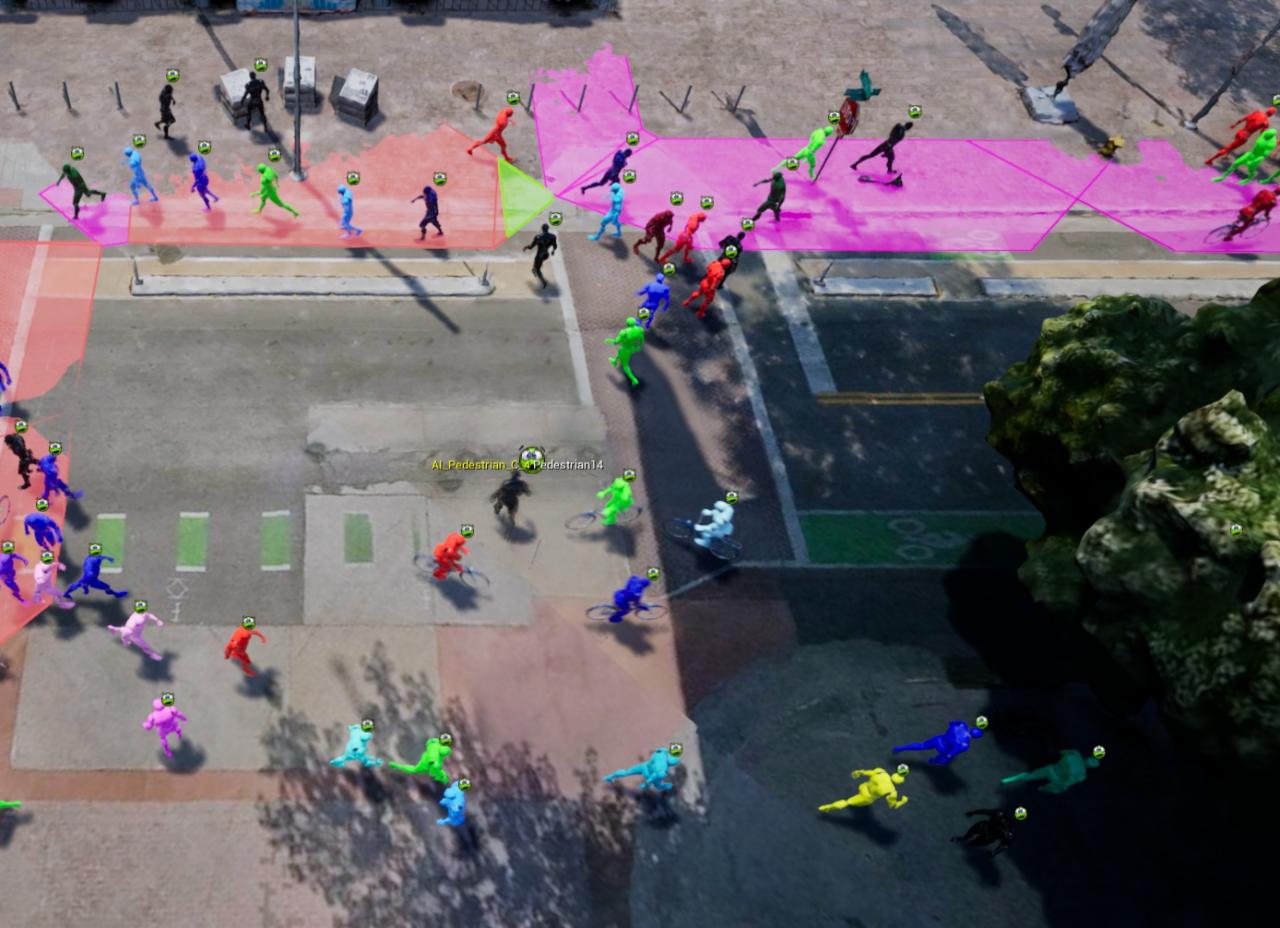
The Realtime Urbanism lab connects advances in computation, communication, and immersive media to understand the social effects of new urban technologies. Engaging critical and computational approaches, the lab creates bridges between design, architecture, urbanism, gaming studies, and virtual world making practices. The lab produces research, public projects, and curricular activities using extended reality technologies, urban simulators, gaming engines, spatial data, agent-based modeling, digital twins, and smart and responsive urban systems.
The mission of the lab is to form connections between research, practice, and city stakeholders, and to provide a critical overview of urban technologies through projects that reveal the structural biases and social impacts of urban immersion. The lab also advocates for and develops new spatial technologies and paradigms that imagine more equitable and exciting urban futures.
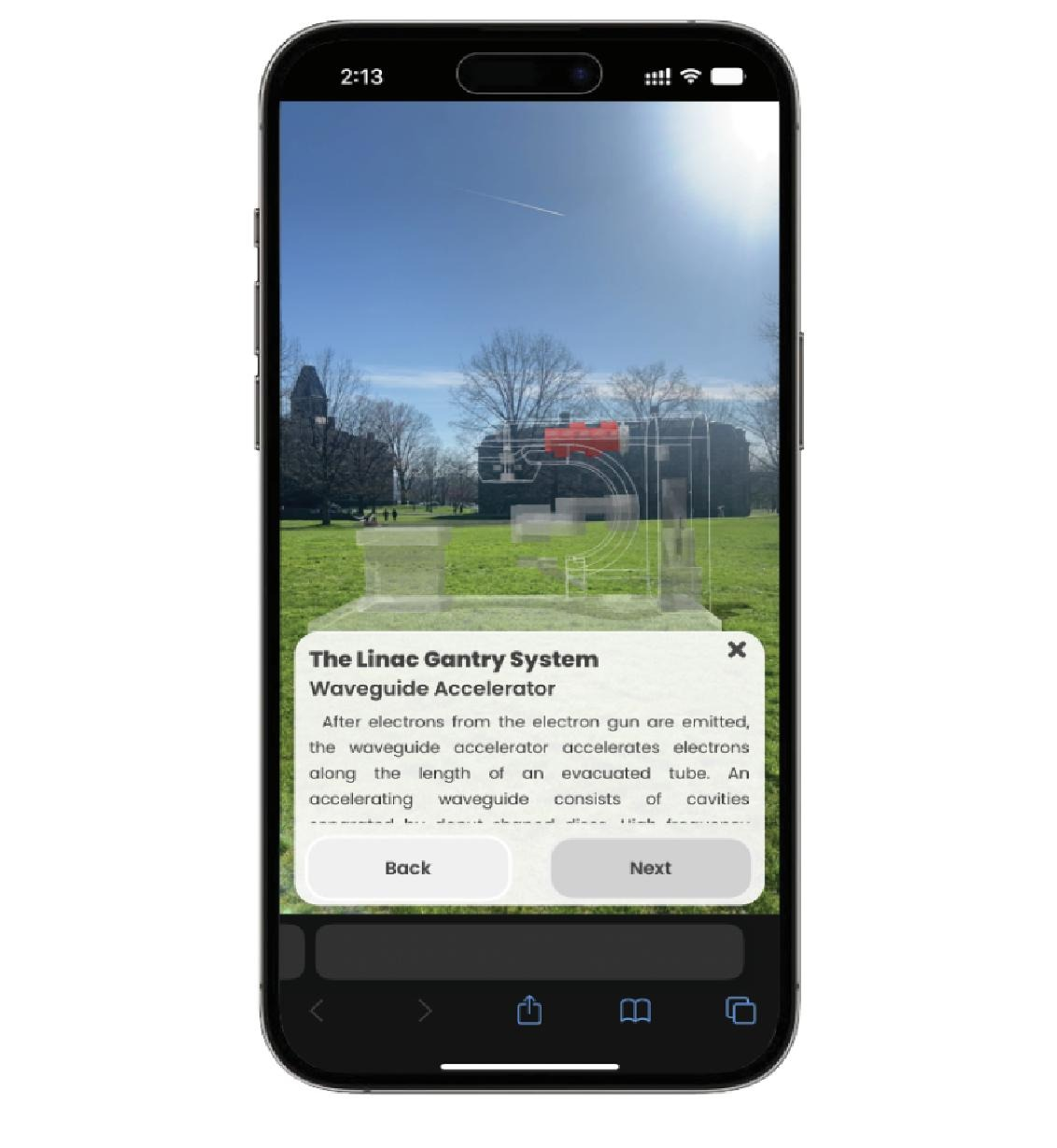
An illustration of Open LEARN web app loaded on a smartphone, where the user loads the model through an internet connection and the QR code.
Open LEARN: Open access linear accelerator education and augmented reality Navigator
Parminder S. Basran, Sung Ho Synn, Gregory A. Marzano, Hyun Maeng, Farzin Lotfi-Jam
Open LEARN: Open access linear accelerator education and augmented reality Navigator
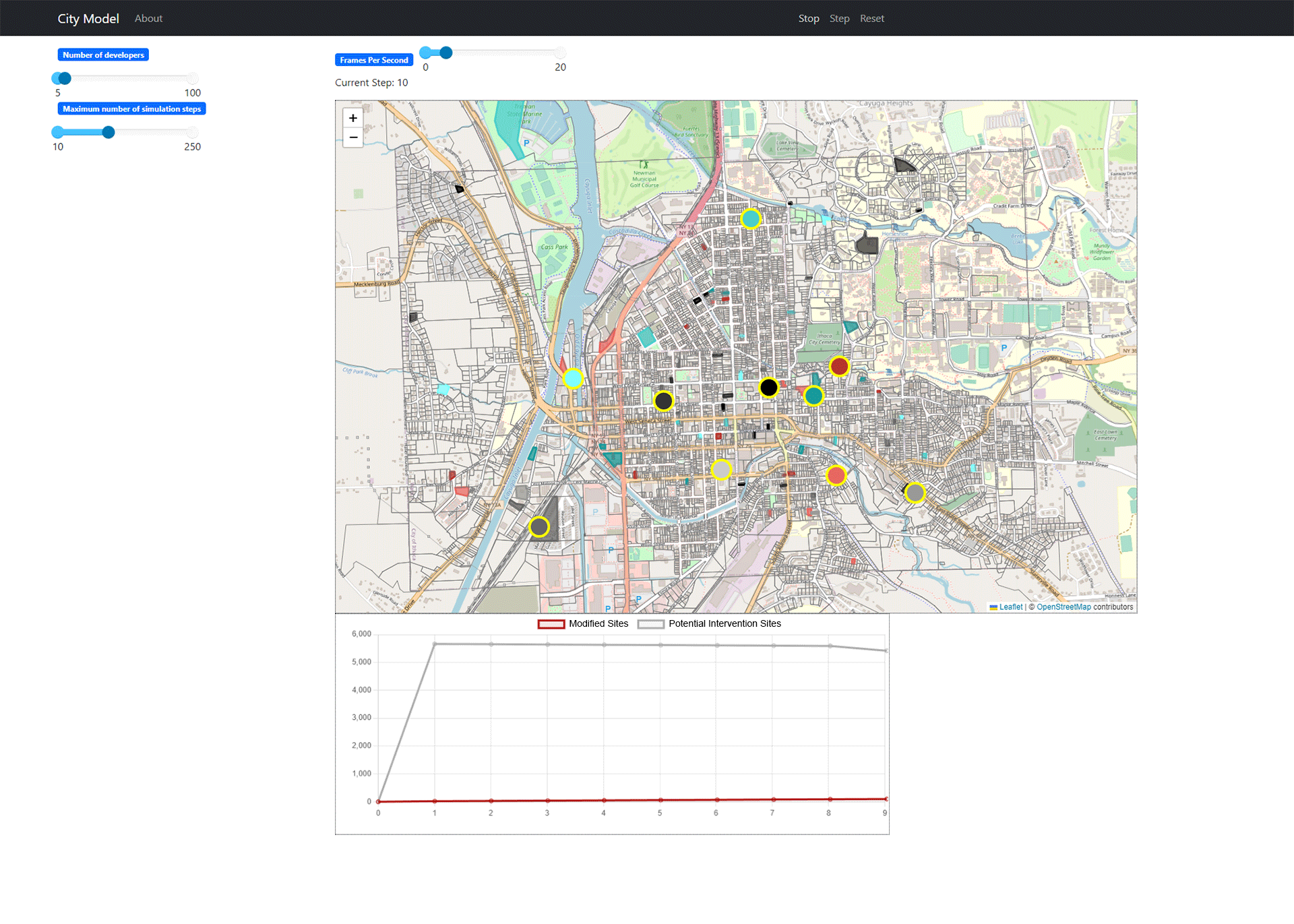
Preliminary agent-based model depicting the reuse spectrum in Ithaca-area development, to be enhanced with local developer insights.
Agent-Based Modeling and 3D Visualization for Building Preservation, Deconstruction, and Reuse in Ithaca
The National Center For Preservation Technology and Training (NCPTT) awarded grant funding for a preservation-focused reuse and deconstruction project to the Just Places Lab and Realtime Urbanism lab.
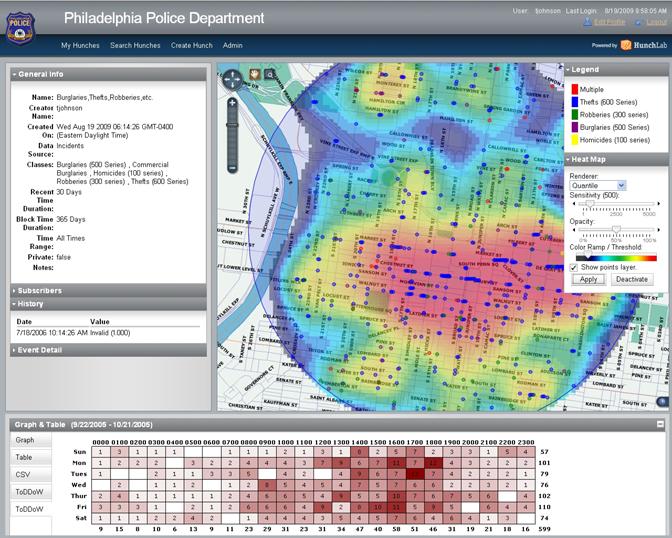
HunchLab 1 software screenshot. Early warning and space-time patterns for Philadelphia Police Department, 2005.
Urban Crisis Simulation
This research, platform, and exhibition project investigates new and recent urban simulation technologies that virtualize urban environments and urban subjects. The project looks at the relationship between the production of urban crises and the implementation of surveillance and simulation technologies.
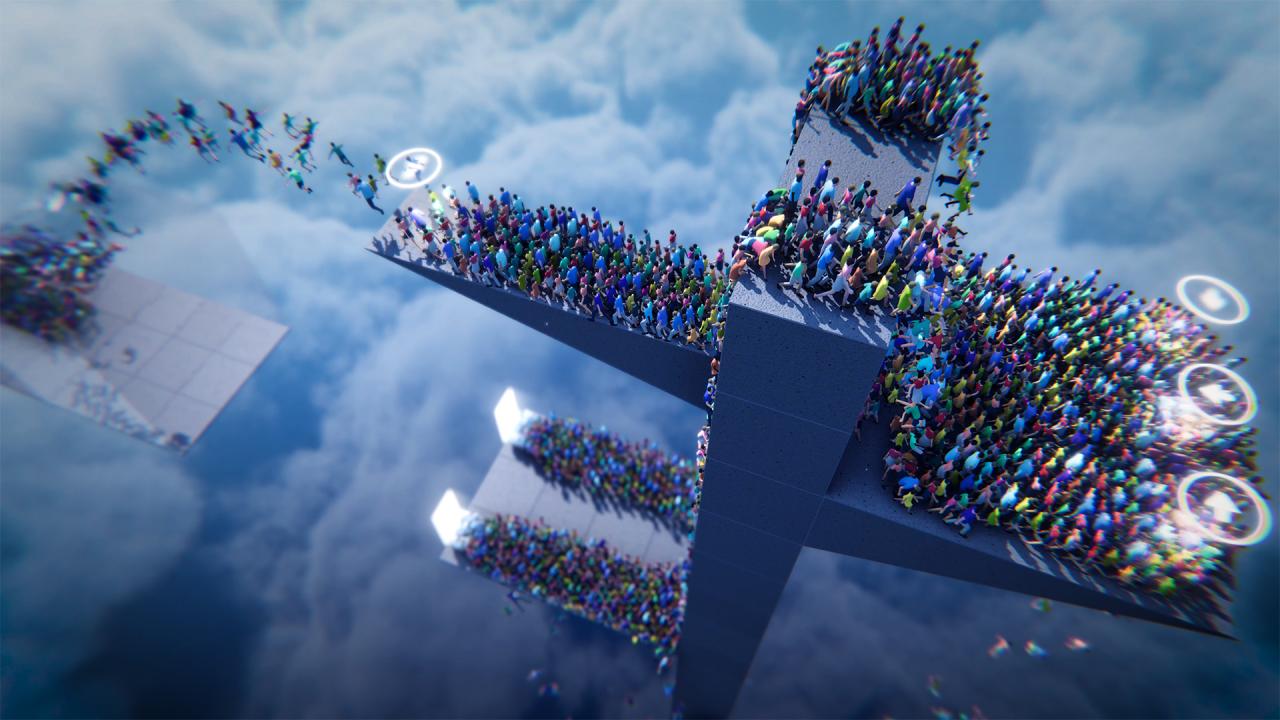
Still frame from HUMANITY teaser by Enhance and THA LTD, 2019.
Simulation: Theories, Environments, Algorithms
Spring 2022 SEMINAR | Arch 3308/6308 (3 Cr.)
From smart city urban management and what-if scenario planning platforms to Mark Zuckerberg’s metaverse of luminous digital avatars, many spheres of urban life are currently and soon-to-be governed by digital anticipation. This course will survey contemporary urban simulation technologies and provide a historical and theoritical context.
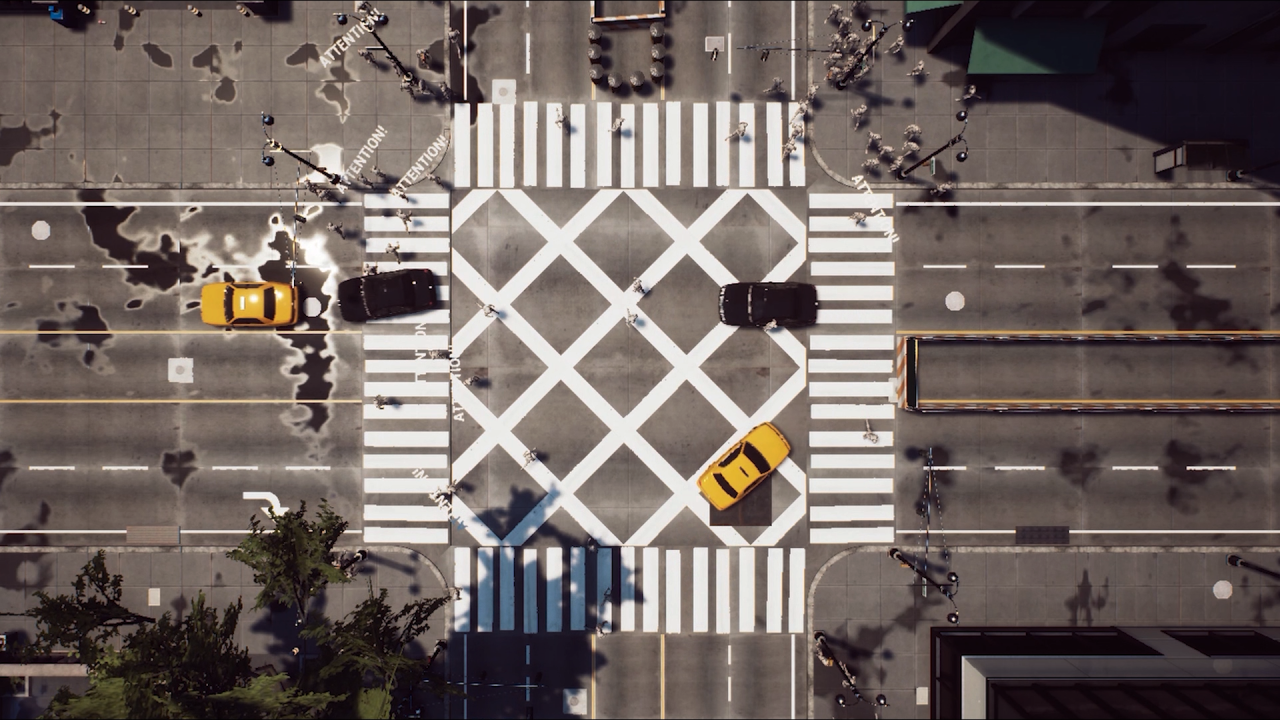
Safe Street. Jesse Basset and Qicheng Wu.
Realtime
Advanced Special Topics Seminar, Fall 2019 & Spring 2020 (co-taught with Greg Schleusner at The Irwin S. Chanin School of Architecture The Cooper Union)
This course explores, modifies, and develops a suite of real-time architectural design assist tools using the Unreal Gaming Engine. To date, real-time software has predominantly been used in the architecture field to visualize environments and allow users to experience projects at the end of the design process. This course will reverse this process and use real-time software as the generator of architectural design.
Protest Simulation. Still frames of simulations in different urban contexts. Guangwei Ren.
Realtime
Visual Studies Seminar, Fall 2019 (co-taught with Greg Schleusner at Columbia University GSAPP)
This course explores, modifies, and develops a suite of real-time architectural design assist tools using the Unreal Gaming Engine. To date, real-time software has predominantly been used in the architecture field to visualize environments and allow users to experience projects at the end of the design process. This course will reverse this process and use real-time software as the generator of architectural design.
Contact
Farzin Lotfi-Jam
lotfijam@cornell.edu
Profile
Address
Realtime Urbanism
Department of Architecture
Cornell University
Ithaca, NY 14853


